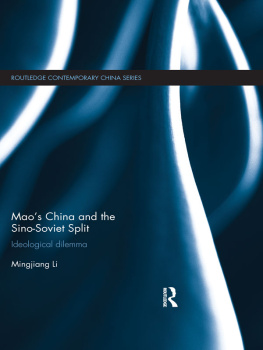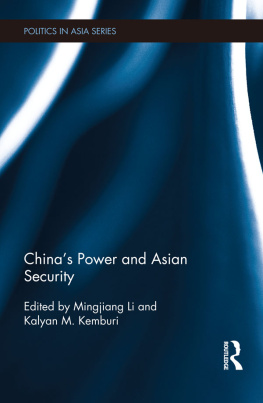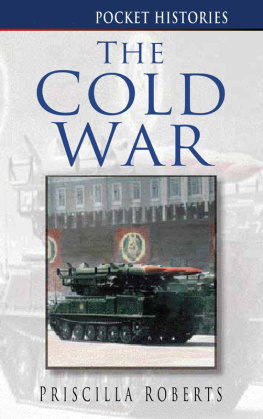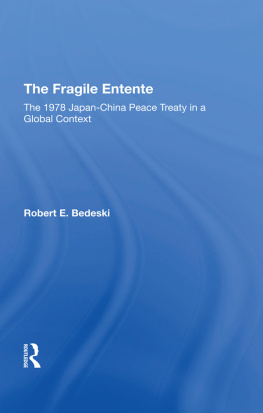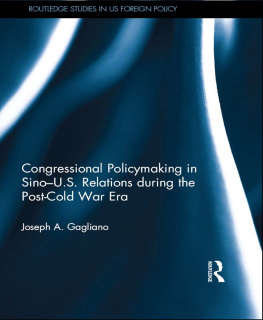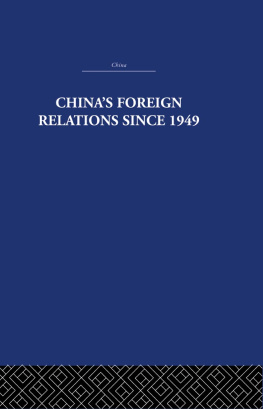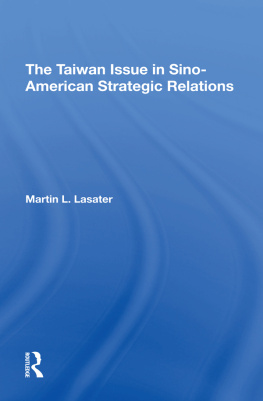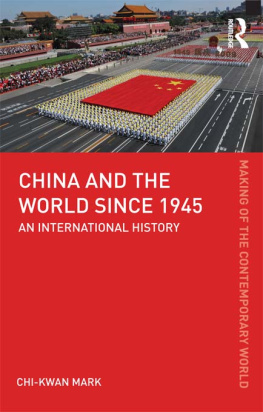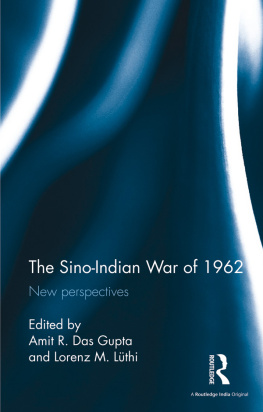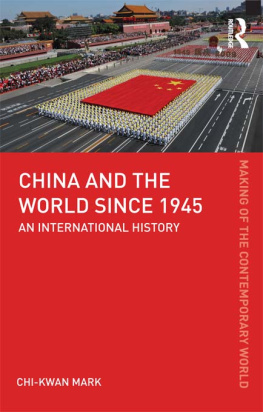Maos China and the Sino-Soviet Split
The Sino-Soviet split in the 1960s was one of the most significant events of the Cold War. Why did the Sino-Soviet alliance, hailed by its creators as unbreakable, eternal, and as representing brotherly solidarity, break up? Why did their relations eventually evolve into open hostility and military confrontation? With the publication of several works on the subject in the past decade, we are now in a better position to understand and explain the origins of the Sino-Soviet split. But at the same time new questions and puzzles have also emerged. The scholarly debate on this issue is still fierce. This book, the result of extensive research on declassified documents at the Chinese Foreign Ministry, and on numerous other new Chinese materials, sheds new light on the problem and makes a significant contribution to the debate. More than simply an empirical case study, by theorising the concept of the ideological dilemma, Mingjiang Lis book attempts to address the relationship between ideology and foreign policy and discusses such pressing questions as why it is that an ideology can sometimes effectively dictate foreign policy, whilst at other times exercises almost no significant influence at all.
This book will be of essential reading to anyone interested in Chinese-Soviet history, Cold War history, International Relations and the theory of ideology.
Mingjiang Li is Assistant Professor at S. Rajaratnam School of International Studies (RSIS), Nanyang Technological University, Singapore.
Routledge contemporary China series
1 Nationalism, Democracy and National Integration in China
Leong Liew and Wang Shaoguang
2 Hong Kongs Tortuous Democratization
A comparative analysis
Ming Sing
3 Chinas Business Reforms
Institutional challenges in a globalised economy
Edited by Russell Smyth and Cherrie Zhu
4 Challenges for Chinas Development
An enterprise perspective
Edited by David H. Brown and Alasdair MacBean
5 New Crime in China
Public order and human rights
Ron Keith and Zhiqiu Lin
6 Non-Governmental Organizations in Contemporary China
Paving the way to civil society?
Qiusha Ma
7 Globalization and the Chinese City
Fulong Wu
8 The Politics of Chinas Accession to the World Trade Organization
The dragon goes global
Hui Feng
9 Narrating China
Jia Pingwa and his fictional world
Yiyan Wang
10 Sex, Science and Morality in China
Joanne McMillan
11 Politics in China Since 1949
Legitimizing authoritarian rule
Robert Weatherley
12 International Human Resource Management in Chinese Multinationals
Jie Shen and Vincent Edwards
13 Unemployment in China
Economy, human resources and labour markets
Edited by Grace Lee and Malcolm Warner
14 China and Africa
Engagement and compromise
Ian Taylor
15 Gender and Education in China
Gender discourses and womens schooling in the early twentieth century
Paul J. Bailey
16 SARS
Reception and interpretation in three Chinese cities
Edited by Deborah Davis and Helen Siu
17 Human Security and the Chinese State
Historical transformations and the modern quest for sovereignty
Robert E. Bedeski
18 Gender and Work in Urban China
Women workers of the unlucky generation
Liu Jieyu
19 Chinas State Enterprise Reform
From Marx to the market
John Hassard, Jackie Sheehan, Meixiang Zhou,Jane Terpstra-Tong and Jonathan Morris
20 Cultural Heritage Management in China
Preserving the cities of the Pearl River Delta
Edited by Hilary du Cros and Yok-shiu F. Lee
21 Paying for Progress
Public finance, human welfare and inequality in China
Edited by Vivienne Shue and Christine Wong
22 Chinas Foreign Trade Policy
The new constituencies
Edited by Ka Zeng
23 Hong Kong, China
Learning to belong to a nation
Gordon Mathews, Tai-lok Lui, and Eric Kit-wai Ma
24 China Turns to Multilateralism
Foreign policy and regional security
Edited by Guoguang Wu and Helen Lansdowne
25 Tourism and Tibetan Culture inTransition
A place called Shangrila
shild Kols
26 Chinas Emerging Cities
The making of new urbanism
Edited by Fulong Wu
27 China-US RelationsTransformed
Perceptions and strategic interactions
Edited by Suisheng Zhao
28 The Chinese Party-State in the21st Century
Adaptation and the reinvention of legitimacy
Edited by Andr Lalibert and Marc Lanteigne
29 Political Change in Macao
Sonny Shiu-Hing Lo
30 Chinas Energy Geopolitics
The Shanghai cooperation organization and Central Asia
Thrassy N. Marketos
31 Regime Legitimacy in Contemporary China
Institutional change and stability
Edited by Thomas Heberer and Gunter Schubert
32 U.S.-China Relations
China policy on Capitol Hill
Tao Xie
33 Chinese Kinship
Contemporary anthropological perspectives
Edited by Susanne Brandtstdter and Gonalo D. Santos
34 Politics and Government in Hong Kong
Crisis under Chinese sovereignty
Edited by Ming Sing
35 Rethinking Chinese Popular Culture
Cannibalizations of the Canon
Edited by Carlos Rojas and Eileen Cheng-yin Chow
36 Institutional Balancing in the Asia Pacific
Economic interdependence and Chinas rise
Kai He
37 Rent Seeking in China
Edited by Tak-Wing Ngo and Yongping Wu
38 China, Xinjiang and Central Asia
History, transition and crossborder interaction into the 21st century
Edited by Colin Mackerras and Michael Clarke
39 Intellectual Property Rights inChina
Politics of piracy, trade and protection
Gordon Cheung
40 Developing China
Land, politics and social conditions
George C.S. Lin
41 State and Society Responses toSocial Welfare Needs in China
Serving the people
Edited by Jonathan Schwartz and Shawn Shieh
42 Gay and Lesbian Subculture inUrban China
Loretta Wing Wah Ho
43 The Politics of Heritage Tourism in China
A view from Lijiang
Xiaobo Su and Peggy Teo
44 Suicide and Justice
A Chinese perspective
Wu Fei
45 Management Training and Development in China
Educating managers in a globalized economy
Edited by Malcolm Warner and Keith Goodall
46 Patron-Client Politics andElections in Hong Kong
Bruce Kam-kwan Kwong
47 Chinese Family Business and theEqual Inheritance System
Unravelling the myth
Victor Zheng
48 Reconciling State, Market and Civil Society in China
The long march towards prosperity
Paolo Urio
49 Innovation in China
The Chinese software industry
Shang-Ling Jui
50 Mobility, Migration and the Chinese Scientific Research System
Koen Jonkers
51 Chinese Film Stars
Edited by Mary Farquhar and Yingjin Zhang
52 Chinese Male Homosexualities

